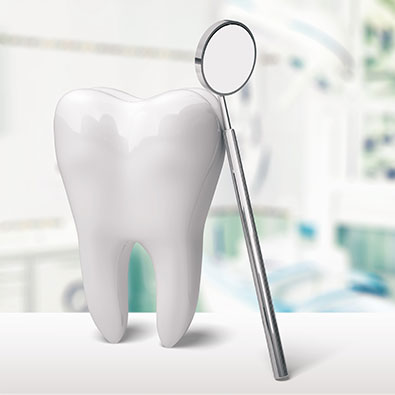Today's Dental
Request an Appointment
Powered by
For urgent issues, please call:
Today's Dental
Powered by
For urgent issues, please call:
Dental implants are an effective solution for a missing tooth. Learn more about dental implants offered at Today's Dental in Edmonton.
Whether a tooth had to be pulled due to excessive decay or whether it was lost during a pickup hockey game, you’re in good company. Studies show that 23% of Canadian adults are missing at least one tooth; 6% have no teeth remaining.
Missing teeth can lead to a variety of unpleasant oral health consequences. At Today’s Dental in Edmonton, we recommend replacing missing teeth with dental implants. Dental implants replace missing teeth on a one-by-one basis, so they don’t rely upon adjacent healthy teeth for support. They function exactly like natural teeth and can last for years.
What Are Dental Implants?The term dental implant is a bit of a misnomer. The implant itself is the portion of the prosthetic that is the anchor. Implants are shaped like a screw and are made of titanium. They are screwed down into the hole formerly occupied by the root of the natural tooth. Once in place the jawbone can grow around the implant, making it a part of the jaw, a process called osseointegration. When the jaw has fully accepted the implant, a post is attached to the top of the implant and an artificial tooth atop that. When completed, the implant now looks and functions like the patient’s natural teeth. |  |
Many people opt to not replace a missing tooth, as the numbers above illustrate.
People don’t think a missing tooth or two is any cause for concern. The reasons can be financial or simple inertia.
But not replacing a missing tooth can lead to serious problems with your oral health.
The teeth on both sides of the missing tooth or teeth now don’t have pressure on them to stay in place, and they tend to slide over to fill in the gap.
This creates problems with the alignment of the teeth and the overall bite.
Formerly straight teeth can become crooked with noticeable gaps. Also, the force created by biting and chewing is sizable.
That energy travels down the teeth into the jawbone beneath. It is this energy that triggers the jawbone to continually create new bone mass, keeping it healthy.
When a person is missing a tooth or teeth, the jawbone under these gaps begins to deteriorate and, if allowed to continue, the face in that area can collapse inward.
The cost of dental implants can vary based on the needs of the patient. If you are curious as to how much implants cost, we recommend contacting our office in Edmonton where we can provide a customized quote. Dr. Manji and his expert staff have extensive experience with dental implants and look forward to meeting you to provide implants that are customized for your mouth.
There Are Many Benefits to Replacing A Missing Tooth with An Implant:
 | How Will I Know If I Am A Good Candidate for An Implant?The key for a patient to be able to have a dental implant to replace a missing tooth is the patient’s jawbone mass. The jawbone must be sufficient to handle the implant. If a patient has had a missing tooth or teeth for some time, there may have been significant bone loss in the jawbone, and this could preclude the patient from being ready for an implant. In these cases, we use jawbone grafts to rebuild the jawbone before we can start the implant process. Jawbone mass is basically the only determinant if a person can have an implant. |
Some patients balk at the time required to place an implant and opt instead to have a bridge. While this is an option, at Today’s Dental in Edmonton, we feel implants are superior. First, bridges need to be anchored on each side of the missing tooth or teeth. Crowns are placed on the healthy teeth to anchor the bridge. To place those crowns, the healthy teeth must be shaved down to make room for the crowns. Implants don’t impinge on neighbouring healthy teeth.
Second, implants behave just like a natural tooth. The patient can eat anything he or she desires without worrying about the bite strength or about breaking the bridge. Hygiene is also no different than what is provided for a natural tooth. Plus, the bite force energy discussed above is delivered down into the jawbone with an implant, just as a natural tooth.
There are four steps to placing a dental implant:
How Long Do Implants Last?With proper maintenance, the titanium implant can last the remainder of the patient’s life. The crown that is attached to the implant usually has a 15-year lifespan, but good hygiene can extend that. Also, even if the crown needs replacing the implant that is part of the jawbone is still in place, so the process is very easy. Do I Have to Provide Special Hygiene for My Implant?One great thing about implants is that they function and are cared for like a natural tooth. Simple daily brushing and flossing are all that’s required. Of course, that hygiene regimen should include twice yearly professional cleanings by the team at our Edmonton office. |  |